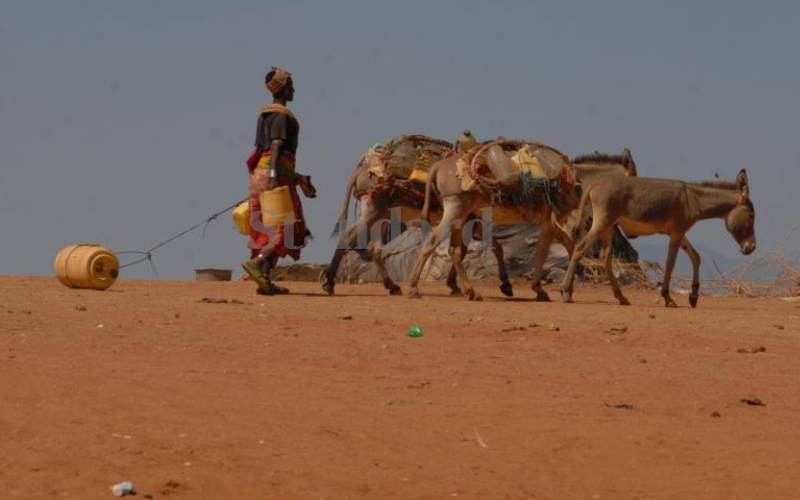
In the dusty and windswept Korr village in Marsabit, Aisha Bulyar pulls a 20-litre jerrycan of water while a pair of donkeys carry her few belongings. Fetching water here is a whole day's affair. The water level at the village well was at its lowest, forcing her to travel kilometres further in search of the vital liquid.
"It got worse in the last four years of drought," says Bulyar as she shelters under the shade of an acacia, too tired to hold a long conversation. "With no rain, those who grow food have nothing to sell. The heat will kill us."